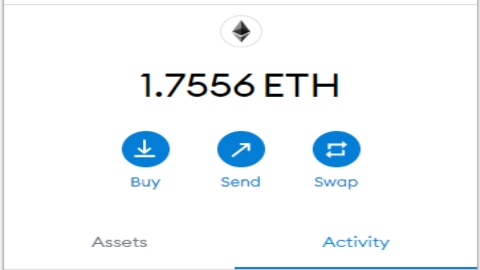Chris Brooks, 50, and his son Charlie, 20, maintain a bitcoin recovery service which can already accuse seven figures in bitcoins recovered in the last year. The service promises the possibility of recovering cryptocurrencies that were “lost” in wallets for different reasons. Some of their clients simply forgot their keys while others bought the assets years ago during the price explosion and don’t know how to gain access. The Brooks, then, are in charge of doing forensic analysis and use different technologies to regain access. If they succeed, they collect part of the loot as payment.
Estimates calculate that close to USD 100,000 million in Bitcoin will be lost due to these types of problems. A 2017 report by Chainalysis, the forensic analysis firm, estimated that between 2.78 million and 3.79 million bitcoins had already been lost.. That’s out of a total of nearly 19 million in circulation today, and a maximum supply of 21 million tokens when the planned supply runs out. “We estimate that about 2.5 percent of that 20 percent or so of lost coins could still be recoveredChris Brooks told reporters.
However, technically, not all cryptocurrencies are recoverable. Such is the case with hard drives damaged beyond repair or those that have been thrown away forever. But Crypto Asset Recovery, the company chaired by the Brooks family, says that you have a good chance of recovering the lost cryptocurrencies if the encrypted private keys still exist but the owner forgot his password or had a bad hard drive with private keys.
Experts acknowledge, on the other hand, that even if you have a wallet and they can open it, you may not have any coin. Former bitcoin owners who dabbled in cryptocurrency years ago may just be hoping they had some long-lost treasure left on that old hard drive, but they weren’t sure and decided to take a look just in case. “About half of the wallets we crack are empty”, according to Chris and Charlie Brooks.
After the 2017 rally, Chris Brooks became more interested in Bitcoin and tried to build a business related to this technology. Being a software engineer with 20 years of experience, he considered automated mining or trading strategies. But had an epiphany finding stories of people losing their bitcoin wallet passwords and thought he’d try starting a recovery service.
Potential clients usually contact the duo and say that they have a wallet but that plost the password to enter instead of those who lost their private keys.
Father and son then request access to the wallet and collect as much information as possible about the client’s normal passwords, be it their email address or platform username. They can also demand that the client hand over an encrypted copy of their private key.
From the company, they recognize that only 30% of cases are resolved. Even in successful cases, they are often disappointed by what they find. “Most of the time we cannot know what is inside the wallet, so we have to trust the client that there will be an amount there worth the work“Charly Brooks said, in dialogue with the BBC. “In the summer a person told us that he had 12 bitcoins in his wallet. We were very professional with him, obviously, but behind the screen we were shaking hands, excited about what we would receive on payment dayhe recalled.We spent 60 hours on the server, plus about 10 on the client, gathering clues. But when we opened the wallet during the video call, it was empty.“. Chris and Charlie say that only one of his clients underestimated what was inside his wallet. It turned out to be his biggest haul yet: $280,000 worth of bitcoins..
In the last year they say they have recovered bitcoins worth a total of “seven digits“.
Keep reading:
Disclaimer: The information and/or opinions expressed in this article do not necessarily represent the views or editorial line of Cointelegraph. The information set forth herein should not be taken as financial advice or investment recommendation. All investment and commercial movement involve risks and it is the responsibility of each person to do their due research before making an investment decision.
Investments in crypto assets are not regulated. They may not be suitable for retail investors and the full amount invested may be lost. The services or products offered are not aimed at or accessible to investors in Spain.
